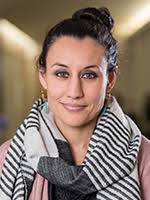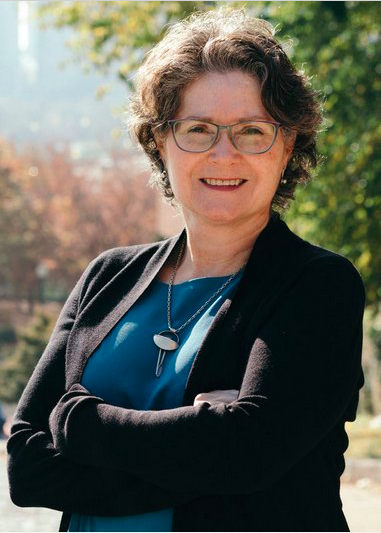Quinnipiac University's 7th Biennial Critical Thinking and Writing Conference Archives
Where: Quinnipiac University, Hamden and North Haven, Connecticut
When: June 17-19, 2019
Program: The complete program is available in as a PDF file.
The conference was supported by Quinnipiac University's
- Center for Teaching and Learning
- Writing and Research Institute
- Office of Innovation and Effectiveness
- College of Arts and Sciences
Speakers
Towards a Literacy of Social Justice: Grassroots Pedagogies from #BlackLivesMatter
Vershawn Ashanti Young/dr. vay, University of Waterloo
► View dr. vay's Bio
 This talk analyzes several online performances from the #BlackLivesMatter movement
This talk analyzes several online performances from the #BlackLivesMatter movement
for the ways they utilize and blend standard academic literacies and African American rhetoric.These performances are discussed as pedagogies of possibility that can sustain a critical literacy of social justice. This talk focuses on the roles that racial dignity, ethics, and empathy should play in literacy education for students, teachers, and the public.
Pedagogies of Freedom: Feedback as a Relational Context for the Development of Critical Writers and Historical Actors
Shirin Vossoughi, Northwestern University
► View Dr. Vossoughi's Bio
 This talk describes how pedagogies of freedom were enacted in a university summer bridge program that sought to challenge normative and depersonalized models of academic writing, working to apprentice students in socially meaningful and autobiographically grounded forms of analysis, critique and argument. Our research looks at the role of written feedback on student writing as a relational context through which educational dignity can take shape. Interviews with students about their experiences with this feedback elucidate the forms of political becoming and cultural healing such settings can support, and raise new questions relevant to the ongoing development of justice-oriented writing instruction.
This talk describes how pedagogies of freedom were enacted in a university summer bridge program that sought to challenge normative and depersonalized models of academic writing, working to apprentice students in socially meaningful and autobiographically grounded forms of analysis, critique and argument. Our research looks at the role of written feedback on student writing as a relational context through which educational dignity can take shape. Interviews with students about their experiences with this feedback elucidate the forms of political becoming and cultural healing such settings can support, and raise new questions relevant to the ongoing development of justice-oriented writing instruction.
Bridging Writing Across the Curriculum and the Scholarship of Teaching and Learning Communities
Sherry Lee Linkon, Georgetown University
► View Dr. Linkon's Bio
 Writing Across the Curriculum emphasizes writing to learn; Scholarship of Teaching and Learning focuses on writing about learning. In WAC, writing is both a tool for and a focus of learning. In SoTL, writing is among the most common forms of evidence through which we analyze learning. As scholars and teachers, how might we draw on all three ways of viewing writing -- as a tool, as a subject, and as evidence? And how can these models help us bridge the range of disciplines, institutions, roles, and identities that shape our work as teachers and scholars?
Writing Across the Curriculum emphasizes writing to learn; Scholarship of Teaching and Learning focuses on writing about learning. In WAC, writing is both a tool for and a focus of learning. In SoTL, writing is among the most common forms of evidence through which we analyze learning. As scholars and teachers, how might we draw on all three ways of viewing writing -- as a tool, as a subject, and as evidence? And how can these models help us bridge the range of disciplines, institutions, roles, and identities that shape our work as teachers and scholars?
Proposal Deadlines: March 18, 2019
Notification of Acceptance: April,2019
Quinnipiac University
275 Mount Carmel Avenue
Hamden, CT 06518

